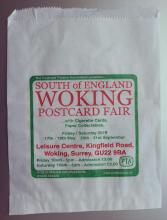15 Sep 1945, Chronology of Events Related to Stanley Civilian Internment Camp
Primary tabs
Franklin Gimson's farewell speech is broadcast on RTHK:
It is with feelings of both joy and sorrow that I take this opportunity of broadcasting a few farewell words to listeners in Hong Kong, of joy that we have come through the worst tribulations of the war and are free men again; and of sorrow that I leave you with my normal mission as a professional Colonial Administrator unfulfilled because of the upheavals of war.
He thanks those who have loyally supported him in his task of keeping the Government going until Harcourt's arrival and pays a warm tribute to the assistance provided by the many Chinese, Indian and Portuguese nationals who remained loyal and risked torture and imprisonment in their support for the Allies - he's aware that it was the uninterned communities who were left 'to 'bear the brunt of the Japanese oppression in Hong Kong':
Some of us who were shut in behind barbed wire will never forget the assistance we got from many such kindly people who with grave risk, heavy expense and much self-denial sent parcels of supplies to us that may truly be said in many cases to have made all the difference between comparative good health and permanent disablement or even death.
He goes on to look forward to a period of rapid progress and reform. Hong Kong has been given a 'clean sheet' and an opportunity for both political and social advance - towards greater self-government and early implementation of medical, housing, educational and town-planning improvements.
He particularly hopes for improvemnts in the life of people of the 'labouring class' and he plans to enter discussions back home with the 'Authorities' who already have an 'enlightened long-term policy' for the construction of a 'New Hong Kong'.
He ends by expressing regret that his period in the colony has been at a time of 'unparalleled distress and calamity' and that he has been so powerless. But he assures his listeners much of his time in Stanley was spent pondering schemes of social, political and economic improvement.
This is a remarkable end to Gimson's time in Hong Kong. He's expressing ideas that before the war only a few radicals - like 'Red' Hilda Selwyn-Clarke - would have dared admit to. It's certain that some of his listeners reacted with a horrified, 'Never!', but the sufferings of internment - and the courage and generosity of 'Asian' friends that Gimson refers to - have changed many people. Whatever the politics of the listener, they must have known that things could never be the same again.
Assistant Superintendent of Police Lancelot Alban Searle marries Sheila Mary MacKinlay in St. John's Cathedral. It's a Stanley romance, and the Reverend Alaric Rose who officiates is also just out of camp.
The abolition of the Military Yen creates chaos. There aren't enough Hong Kong dollars, the Chinese population were taken completely by surpise, employers of labour aren't co-operating, and the morning's torrential rain is making eveything more difficult. The China Mail (page 1) is now calling the abolition assumed 'by broad inference' - not actually proclaimed! In any case, it reports the immediate creation of a black market in which essential items are traded for the MY.
Some members of the Hong Kong University staff have left Stanley and others have arrived with the relief force, so today there's an informal meeting at the Gloucester Hotel. Most important members are Duncan Sloss, Lindsay Ride, Gordon King and Chan Kwan Po. Chan is appointed university secretary at today's meeting.
But the University campus has been left 'almost completely devastated' and there seems little prospect of the University re-opening.
Sources:
Gimson: Hong Kong Sunday Herald, September 16, 1945, page 1
University: Peter Cunich, A History of the University of Hong Kong, 2012, 435, 546
Wedding: Hong Kong Sunday Herald, September 16, 1945, page 6
Note:
For the 'European' left in pre-war Hong Kong, see
http://brianedgar.wordpress.com/2013/09/12/the-european-far-left-in-hong...

